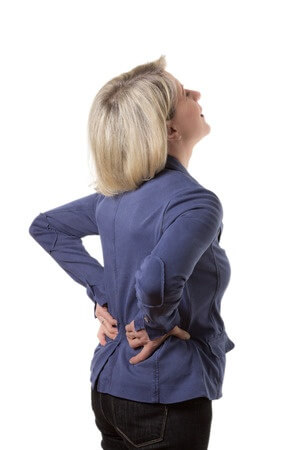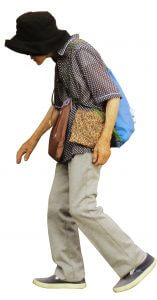Lightweight, strong, and hard bones form the skeletal system can perform many functions in the body, such as producing red and white blood cells, protecting organs within the body, storing minerals, and enabling mobility. As living organs, bones can grow, break, repair themselves, and become weaker or stronger, largely as a result of diet and exercise. Poor diet and exercise as well as aging can lead to bone loss, which leads to low bone density, bone weakness, and osteoporosis, a serious disease that leads to bone breaks and fractures, lack of mobility, and disability.
Bone Development
Bones are made strong because minerals such as calcium phosphate and calcium carbonate combine with the collagen that makes them flexible so that they can withstand stress. The bones are strong due to calcium, and they, along with the teeth, store 99% of the calcium in the body.
Throughout a person’s life bone continually breaks down, through a process called resorption, as new bone grows and develops. If bone breakdown occurs at a faster rate than bone development, the result is bone loss. Bones become porous, weak, and fragile. As they move from the state where they are weak, and the strength or bone density is low (osteopenia), they can become even more porous (osteoporosis.)
Bone development in the human body largely occurs during childhood and adolescence until a peak bone mass occurs around age 30. At this point, the bones are usually the largest and densest they will ever be. The resorption process starts to exceed the development of new growth, especially in women who suffer a strong loss of bone density after menopause. By age 65, men catch up.
What Causes Bone Loss
While some bone loss occurs naturally due to the resorption process, lifestyle, disease, and medication can speed up the process:
- Smoking
- Alcohol consumption of more than two drinks a day
- Corticosteroid medications for diseases such as lupus, arthritis, asthma, Crohn’s disease, and low testosterone in men
- Poor diet lacking in adequate calcium and vitamin D
- Lack of exercise
When bones are weaker, you are more susceptible to falls, so if you are unstable on your stilettos, trip on rug or cords, or slip on ice, you have more likelihood of falling and causing breaks. The impact of bone loss, especially among the elderly, is that they become susceptible to breaking the hip or other bones which renders them disabled for a time, and weak even after the injury is healed.
Preventing Bone Loss Naturally
To combat bone loss, there are a wide range of osteoporosis medicines, as well as some hormone related therapies, that are effective in stopping bone loss in many people. Although safe when used for a short time, many remedies can produce undesirable side effects.
For most people, preventing bone loss starts with diet and exercise:
- Eating diet rich in calcium as found in dark leafy vegetables, calcium fortified cereals with low-fat dairy products, orange juice, canned salmon and sardines with bones, or soy products. (You might consider supplements if your calcium levels are less than 1,000 milligrams for people between 18 and 50 or 1,200 milligrams for women over 50 and men over 70).
- Absorbing sunlight, a natural source of vitamin D, and taking supplements of this mineral.
- Exercising to build strong bones and slow bone loss through a combination of strength training and weight-bearing exercises. While starting exercise as a young person and continuing throughout your life is the best way to build strong bones for lifetime, you can help strengthen them anytime you start.
Raintree Medical and Chiropractic Center can help you Improve Bone Health
Whether you need advice on a healthy lifestyle or exercises to help strengthen your bones, Raintree Medical and Chiropractic Center can help. For an appointment, schedule online or call us today at 816-623-3020.


